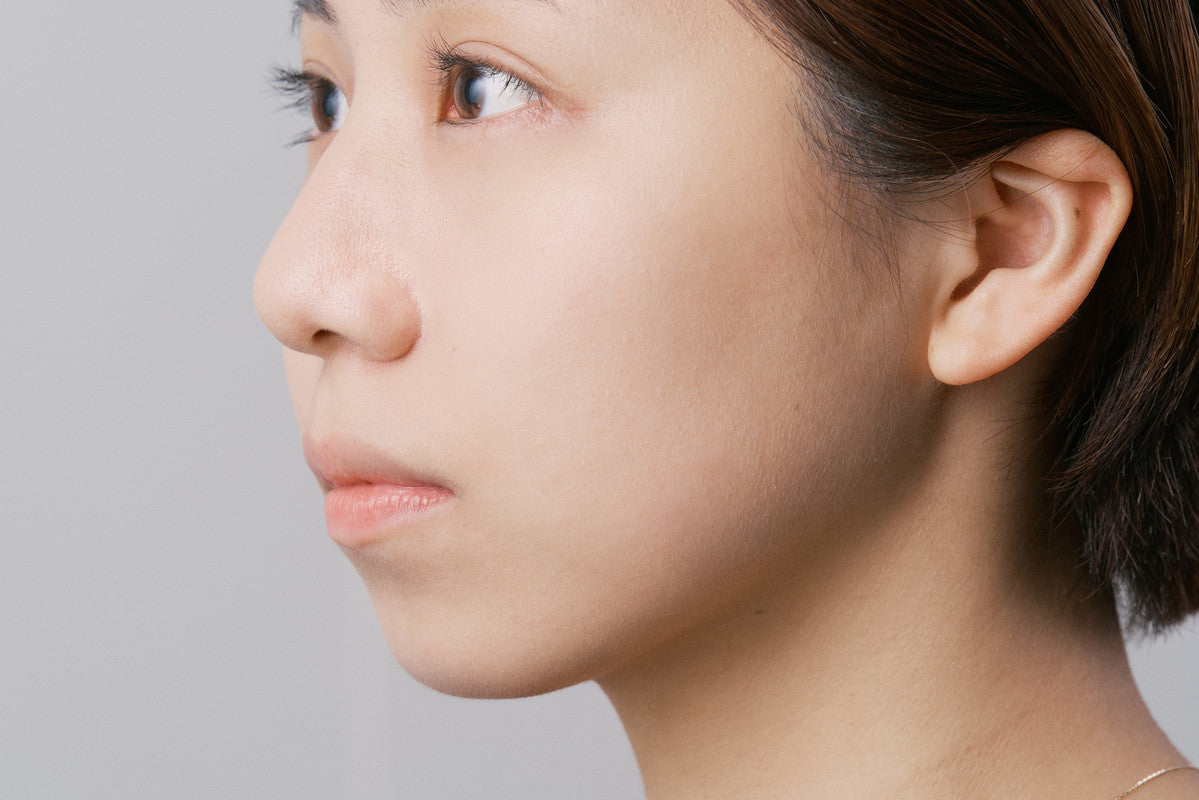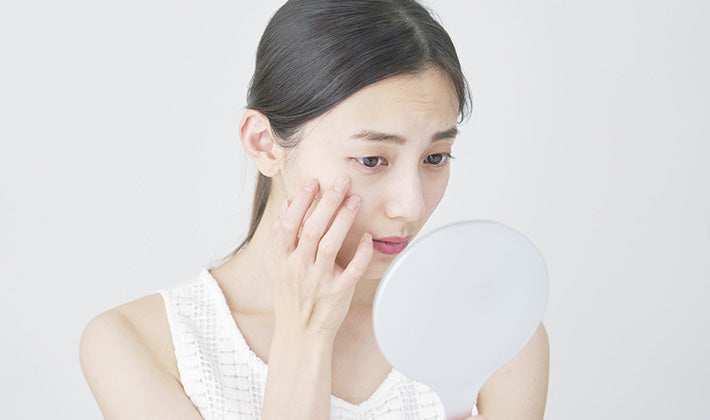
#Skin Care #Skin Problem
2024/06/07
How does each season affect your skin? Here is some beauty advice for healthy & glowing skin all year round!
Topic
Characteristics of each season & Effects on your skin
Understanding the characteristics of each season and their effects on your skin is essential for maintaining a healthy and radiant complexion. As each season brings its own set of challenges and opportunities for skincare, by adapting your beauty routine to accommodate these seasonal changes, you can ensure that your skin stays healthy and glowing in every season!

Spring
Characteristics
Spring is known for its milder temperatures, blooming flowers, and increasing daylight. In general, spring temperatures typically range from mild to moderately warm and might range from around 50 to 70 degrees Fahrenheit (10 to 21 degrees Celsius) during the daytime. However, there can be warmer or cooler days depending on factors such as geographic location, altitude, and weather patterns.
Effects on Skin
As the weather warms up, humidity levels may rise, leading to increased moisture in the air. This can be beneficial for those with dry skin, as it helps to hydrate and soften the skin. However, the fluctuating temperatures and allergens from pollen can trigger skin sensitivities and allergies in some individuals.
Summer
Characteristics
Summer is characterized by warm to hot temperatures, intense sunlight, and longer days. The temperature in summertime can vary significantly depending on geographical location, climate, and specific weather patterns. It is a popular season for outdoor activities, vacations, and enjoying time at the beach or pool.
Effects on Skin
The higher temperatures and increased UV exposure during summer can lead to sunburn, heat rash, dehydration, and hyperpigmentation. Additionally, excessive sweating can clog pores and contribute to breakouts and acne flare-ups.
Autumn (Fall)
Characteristics
Autumn brings cooler temperatures, falling leaves, and shorter days. In temperate regions, the average daytime temperatures in autumn typically range from around 50 to 70 degrees Fahrenheit (10 to 21 degrees Celsius). However, there can be significant fluctuations in temperature, with cooler mornings and evenings and milder afternoons.
Effects on Skin
The transition from summer to autumn may result in drier air and lower humidity levels, leading to decreased moisture in the skin. This can cause dryness, flakiness, and irritation.
Winter
Characteristics
Regardless of the region, winter is typically characterized by colder temperatures, shorter daylight hours, dry air and the potential for snow, ice, and frost.
Effects on Skin
Cold weather and indoor heating can strip the skin of its natural oils, leading to dryness, itchiness, and sensitivity. Harsh winds and low humidity levels can exacerbate these effects, resulting in chapped lips, cracked skin, and inflammation.
Each season presents unique challenges and considerations for skin care. Let’s see our recommended beauty advice in the next section below!
How to take care for your skin in each season

Beauty Advice for Spring
1.Use gentle cleansing to remove pollen and pollutants from the skin. Avoid harsh soaps or cleansers that can strip your skin of its natural oils.
2.Use hydrating moisturizers to balance skin hydration levels.
3.Using a face mask once or twice a week to replenish moisture and give your skin a boost is also good skin care in Spring.
4.Also, don’t forget to put on sunscreen even on the day you stay indoors as UV rays can get through your windows!
Beauty Advice for Summer
1.Wear sunscreen daily to protect your skin from UV damage, and reapply it frequently, especially when spending time outdoors.
2.Use non-comedogenic moisturizers to prevent clogged pores and breakouts.
3.Use facial mists during the day to help keep your skin feeling fresh and hydrated in the heat.
4.If you get sunburn, cool down the skin by putting cool water on your face to soothe the sunburn. After your skin has cooled down, use gentle moisturizer to the affected area to help trap moisture and promote healing. Also, avoid further sun exposure and avoid using harsh products.
Beauty Advice for Autumn
1.Use rich and nourishing moisturizer to provide your skin with extra hydration and protection against dryness. Look for products containing ingredients like hyaluronic acid, glycerin, or ceramides to help lock in moisture.
2.Heating systems can dry out the air indoors, which can also dry out your skin. Using a humidifier can add moisture back into the air, helping to prevent your skin from becoming too dry.
3.Cooler weather can lead to dry, chapped lips. Use a lip balm with moisturizing ingredients to keep your lips hydrated and protected.
Beauty Advice for Winter
1.Use a gentle, hydrating cleanser to avoid stripping the skin of its natural oils.
2.Apply a rich, emollient moisturizer to lock in moisture and protect the skin from harsh winter conditions.
3.Just like in Autumn, using a humidifier indoors to add moisture to the air and prevent dryness is good for skin in winter.
4.Don't forget to continue wearing sunscreen, as UV rays can still penetrate through clouds and cause skin damage, even in winter.
5.hot water shower/bath can be enjoyable during winter time. However, as the hot water can strip your skin of its natural oils, leaving the skin dry and irritated, lukewarm water might be a better choice in winter. Also, limit your shower or bath time to no more than 10 minutes to protect your skin from drying out.
In summary, understanding how each season affects your skin is key to maintaining a healthy and glowing complexion throughout the year. By following these beauty tips will help you achieve radiant and healthy skin regardless of the season.




